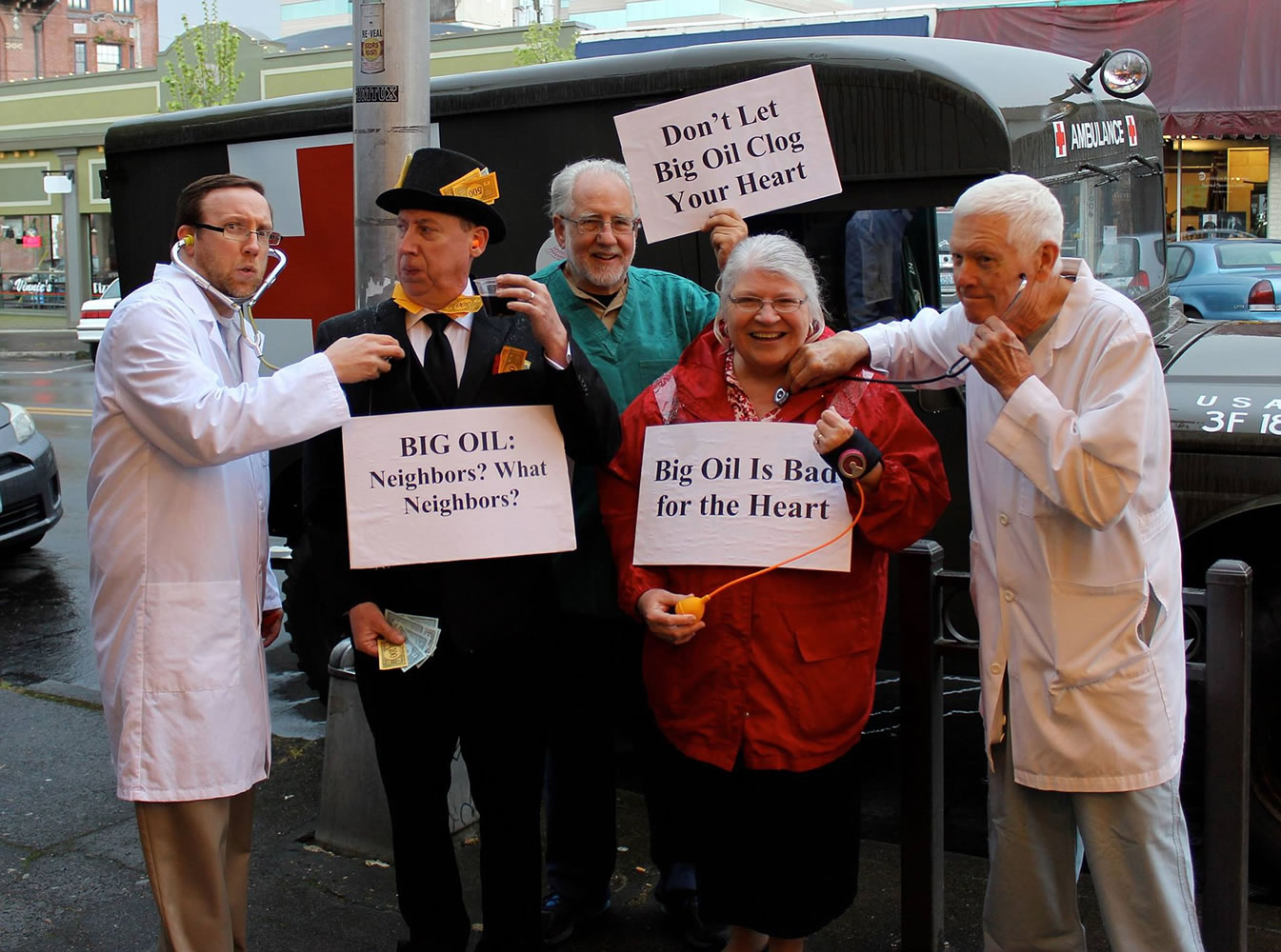What the Rev. Brooks Berndt did for his Hazel Dell church, he now hopes to do for many more congregations in the United Church of Christ family: get them actively fighting for environmental causes.
Berndt, 38 — “Pastor Brooks” to his flock — will leave the Pacific Northwest at the end of this month to take a new activism job — National Minister of Environmental Justice — at UCC headquarters in Cleveland, Ohio. It’s a natural continuation of his work over the last few years, as he’s led his First Congregational Church to demonstrate in public and to lobby policymakers in Olympia for left-leaning causes like stricter gun laws, marriage equality, labor empowerment and an end to the use of fossil fuels such as oil and coal.
“Christianity usually leads us to challenge the status quo,” he said. “That’s what Jesus was about, and I think that’s where our faith and values need to lead us.”
Berndt said faith-based activism is a family tradition. His father, a math professor, was involved in their Urbana, Ill., church’s humanitarian work and helped launch a center there for Latin American refugees from the wars of the 1980s. The books on the shelf at home were all about liberation theology — that’s an interpretation of Christianity focused on poverty and injustice — which grew out of Latin American Catholicism but was adopted by people-power movements everywhere, including in black America.
“Somehow that rubbed off on me,” said Berndt, who went on to study under Oakland, Calif., preacher the Rev. J. Alfred Smith Sr., president of the Progressive National Baptist Convention. Berndt and Smith eventually collected their back-and-forth letters about faith and activism in a book, “Sounding the Trumpet: How Churches can Answer God’s Call to Justice,” published in 2013.
The puzzle of acting
Berndt was first interested in coming to the Portland area because it was known as a hotbed of environmental activism, he said. And yet, when he arrived here in 2007, getting his congregation to grow past well-meant charity and service and toward real political activism was a daunting puzzle. Berndt managed to solve it, he said, by holding issue conversations about putting values into action.
Eventually his church started selecting one pressing issue per year — such as children’s welfare, marriage equality or gun control — and got busy marching, holding meetings and lobbying legislators. His Hazel Dell church became one of the first in the state to host same-sex weddings. And Berndt himself turned up at striking union dockworker rallies where he accused the United Grain Company of “big sins to repent.”
“Faith enters into all areas of life,” Berndt said. He never worries about getting “too political,” he said, adding that “too political” and “too controversial” are just euphemisms for making people uncomfortable. He noted that the terms “environmental racism” and “environmental justice” were first coined in the late 1980s in a groundbreaking UCC church report about dangerous chemicals’ being dumped in minority communities.
He said he couldn’t be more pleased that UCC leadership voted to divest its money from fossil fuel companies two years ago — it was the first church organization in America to do so — and it just a few weeks ago passed a new recommendation urging the phase-out of fossil fuels as quickly as possible.
He’s also pleased, he said, at the speed with which marriage equality has gone from an outrageous notion to a widely accepted fact. The U.S. Supreme Court’s final decision on the matter was handed down while Berndt was at the UCC General Synod — its biannual main meeting — in June.
“It was a peak moment,” he said. “To me it’s a great reminder — when you are working for change, it can feel like you’re hitting your head against the wall. Nothing is happening — until cracks start to appear and you bust on through. Who’d have thought, a few years ago, that we’d be where we are today?”
Visiting churches
Berndt loves to preach, he said, but as the UCC’s new National Minister of Environmental Justice he’ll spend less time in the pulpit than he does now — unless he guest-preaches at the local churches that he’ll probably be visiting two out of the four weekends of the month, he said.
Visiting churches and helping them figure out how to get politically and environmentally active will be the heart of his new job, he said. The very idea puts a smile on his face while he’s discussing it in his office at the church on Northeast 68th Street.
“I’d like to see other churches take action,” he said. “The lesson I learned from this church is how to get people to be more engaged and active.” While he’ll be able to help craft policy recommendations and lobby at higher levels of government, he said, looking for local issues and “local victories” for UCC churches across the nation will be his main strategy.
All of which reflects what he learned in Clark County, he said. “This is a pivotal place in the fight against global warning. It has shaped who I am.”
Berndt’s wife, a hospice social worker, and their two young children will go with him when he makes the move, he said.




